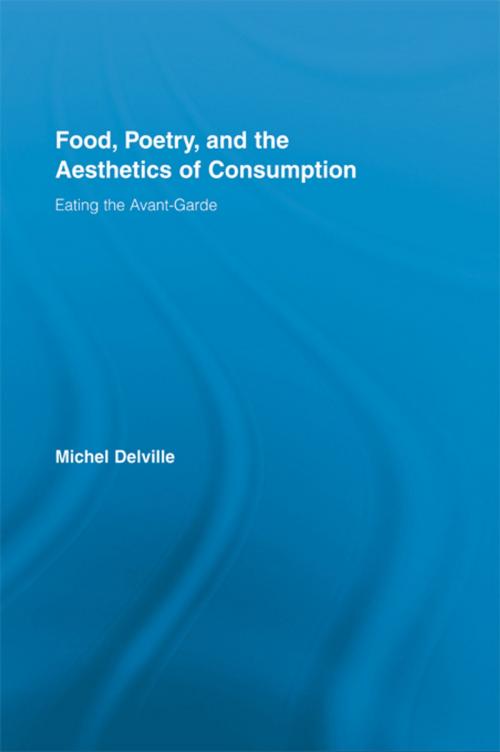Food, Poetry, and the Aesthetics of Consumption
Eating the Avant-Garde
Fiction & Literature, Literary Theory & Criticism, Poetry History & Criticism| Author: | Michel Delville | ISBN: | 9781135904692 |
| Publisher: | Taylor and Francis | Publication: | August 6, 2012 |
| Imprint: | Routledge | Language: | English |
| Author: | Michel Delville |
| ISBN: | 9781135904692 |
| Publisher: | Taylor and Francis |
| Publication: | August 6, 2012 |
| Imprint: | Routledge |
| Language: | English |
From Plato’s dismissal of food as a distraction from thought to Kant’s relegation of the palate to the bottom of the hierarchy of the senses, the sense of taste has consistently been devalued by Western aesthetics. Kant is often invoked as evidence that philosophers consider taste as an inferior sense because it belongs to the realm of the private and subjective and does not seem to be required in the development of higher types of knowledge. From a gastrosophical perspective, however, what Kant perceives as a limitation becomes a new field of enquiry that investigates the dialectics of diet and discourse, self and matter, inside and outside.
The essays in this book examine the importance of food as a pivotal element – both materially and conceptually – in the history of the Western avant-garde. From Gertrude Stein to Alain Robbe-Grillet and Samuel Beckett, from F.T. Marinetti to Andy Warhol, from Marcel Duchamp to Eleanor Antin, the examples chosen explore the conjunction of art and foodstuff in ways that interrogate contemporary notions of the body, language, and subjectivity.
From Plato’s dismissal of food as a distraction from thought to Kant’s relegation of the palate to the bottom of the hierarchy of the senses, the sense of taste has consistently been devalued by Western aesthetics. Kant is often invoked as evidence that philosophers consider taste as an inferior sense because it belongs to the realm of the private and subjective and does not seem to be required in the development of higher types of knowledge. From a gastrosophical perspective, however, what Kant perceives as a limitation becomes a new field of enquiry that investigates the dialectics of diet and discourse, self and matter, inside and outside.
The essays in this book examine the importance of food as a pivotal element – both materially and conceptually – in the history of the Western avant-garde. From Gertrude Stein to Alain Robbe-Grillet and Samuel Beckett, from F.T. Marinetti to Andy Warhol, from Marcel Duchamp to Eleanor Antin, the examples chosen explore the conjunction of art and foodstuff in ways that interrogate contemporary notions of the body, language, and subjectivity.















